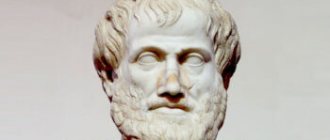The ability to win over an audience is the most important skill for a person striving for success in various areas of life. All studies of the phenomenon of first impression confirm one thing: our brain perceives the initial assessment as the most complete and correct. The first impression is very stable; everything that contradicts it is considered an exception by the brain. To erase a negative opinion about yourself, you will have to correct the situation many times in different contexts, otherwise the unpleasant impression will remain dominant.
The Roman patricians placed the basics of oratory above knowledge of the laws. Since then, little has changed. The ability to speak effectively and impress the public is a necessary quality of a leader. A person who masters rhetoric expresses his thoughts clearly and clearly, listens and hears opponents, is able to convince skeptics and come to an agreement with opponents.
A charismatic leader is a success for the company. Some bright personalities are charismatic by nature, but this is very rare, so entire PR departments work on the image of top managers. And yet, no PR person can speak in front of the public or negotiate for his boss, so the manager has no choice but to learn the art of public speaking. This is necessary not only for top managers and public politicians; public speaking skills are necessary for managers at any level, teachers, and anyone who plans to advance their career.
Content
- What a speaker should be able to do
- What is the basis of oratory?
- Development of public speaking skills
- Composition of oratorical speech
- How to structure a speech according to the rules of oratory. A clear structure of the speech.
- Competent and expressive language
- Objective and useful information
- Balance between emotions and facts
- Laconic speech
- Appropriate pauses
- Portrait of the audience
- Improvisation
- Prepared jokes, quotes, stories
- Sense of humor
- Narrative style
Basic properties
The speaker's monologue is designed to convince the audience and set it in the right mood. Oratorical abilities include the ability to choose the right style, linguistic and facial means of communication with the listener, and build the composition of your monologue. What specific features does the oratorical style have in comparison with other styles?
- public character, appeal to a large audience of listeners;
- the presence of a clear structure and formative parts, sequentially interconnected;
- propaganda character;
- the presence of a goal that needs to be conveyed to the public, convinced of its correctness and motivated to further action;
- the internal energy of the word, authority, and the speaker’s passion for the topic being presented.
The speaker strives to convey to the public his psychological mood and set the desired message, and for this he himself must be confident in his words. Having managed to exert his will, he will be able to influence his listeners.
What a speaker should be able to do
An orator is a speaker who knows how to speak in front of an audience and has a whole arsenal of rhetorical skills. The speaker can be called a man-orchestra, he:
- knows the techniques of oratory - competently, beautifully and intelligibly conveys his thoughts to the public;
- knows the psychological mechanisms of influence on the audience;
- has acting skills - understands the laws of stage speech, controls gestures and facial expressions;
- feels the response of the audience and knows how to improvise;
- He is well versed in the topic he is talking about.
Back in Ancient Greece, where rhetoric was born and flourished, there was debate as to whether eloquence was an innate talent of the elite, or a skill that could be developed. Many people are still convinced that successful public speaking is the destiny of charismatic leaders, while this option is not available to others. But the story of the famous ancient Greek orator Demosthenes is a lesson for everyone who considers oratory abilities to be exclusively a gift from God.
Demosthenes was tongue-tied, had a quiet voice and constantly twitched his shoulder. It is difficult to imagine a person more unsuited to rhetoric. But the dream of becoming a famous speaker came true thanks to exceptional perseverance and endless training. So the fame of Demosthenes’ talent has survived for a couple of millennia and has become an example of how to develop oratory, having obvious contraindications to public speaking.
Communicate with people
Training at home gives excellent results, but it is impossible to hone your speaking skills without communicating with other people. The easiest thing in this regard is for students - they have access to excellent practice of speaking in front of an audience of fellow students. What to do if you do not have such an opportunity? Look for any opportunities to network and hone your skills. Start with a small audience. Do you feel awkward and embarrassed to speak in public? For your first experiments, choose comfortable listeners - for some it is easier and calmer among close friends, for others, on the contrary, with strangers.
You need to overcome yourself and just start. Each time everything will happen much easier and more pleasant. Did you notice that you failed? Do not despair. Conduct error analysis. Perhaps you chose the wrong words or the interlocutor is simply not interested in the topic you proposed. The ability to listen to others is no less useful than the ability to speak beautifully. Ask questions. The person himself will tell you what topic is interesting to him. Your job is to keep the conversation going. Remember? You have already practiced at home and can communicate about everything.
What is the basis of oratory?
Rhetoric was born in Ancient Greece as the science of oratory. Even then, it united the art of eloquence itself, the science that studies oratory techniques, and the very process of persuasion with the help of words.
In short, what public speaking is is the skill of public speaking in front of an audience. Rhetoric teaches how to effectively influence the public based on three main factors:
- Ethos - the conditions for delivering a speech: time, place, composition of the audience.
- Pathos is the message of the speaker, the topic and goals of his speech.
- Logos - linguistic means and oratorical techniques in speech.
Depending on the specific situation (ethos), different types of eloquence :
- academic rhetoric - lectures, scientific reports;
- socio-political rhetoric - parliamentary speeches, diplomatic speeches, manifestos and reports, rallies, military-patriotic speeches;
- judicial rhetoric - speeches of prosecutors and defense attorneys;
- theological rhetoric - sermons, the word of the pastor;
- social and everyday rhetoric - table and welcoming speeches, civil funeral services, commercial eloquence.
Pathos determines the purpose and features of the style of oratory :
- informational speech communicates new facts or knowledge to the audience;
- entertaining - designed to amuse and captivate the audience;
- persuasive - has the goal of convincing listeners that the speaker is right;
- agitating - calls on the audience to take some action;
- inspiring - infects with emotions.
Video
In this section of the training on public speaking skills, you can watch videos of famous speeches by outstanding speakers: Martin Luther King, Steve Jobs, Vladimir Lenin and others. Also here you can find videos from various competitions, presentations and speeches of people to investors. In addition, the section contains video lessons from leading experts in the field of public speaking.
Watch all videos →
Development of public speaking skills
The definition of oratory in the modern sense is, in essence, the culture of speech and psychological skills that make a person effective in the field of public speaking and interpersonal communication. Rhetoric uses emotional and psychological techniques to influence listeners and takes into account the portrait of the audience. Its main task is not so much to convey knowledge as to form an opinion and convince.
Why is public speaking necessary today? A speaker who has mastered the skills of eloquence not only controls himself during a speech, he completely controls the situation. Developing skills is impossible without constant training. Rhetoric has never been a mere theory; in this discipline, quantity of practice develops into quality.
The speech of a trained speaker has special properties:
- contains linguistic and non-verbal methods of influencing the listener;
- focused on receiving feedback from the audience;
- The effectiveness of influencing the public is achieved through the interaction of the psychological state of the speaker and his authority among the audience.
Fear of public speaking
Anxiety and self-doubt prevent a speaker from expressing his thoughts clearly. He often gets confused, his speech becomes confused and the viewer has to strain to catch the essence of what is being said. Excitement and fear of an audience can lead to failure of any performance. How not to be afraid of public speaking?
The first step to solving the problem is to analyze and identify those factors due to which a person experiences discomfort before going on stage and is afraid of the audience. Most often, the reasons for such a reaction are psychological in nature. Uncontrollable fear and anxiety can occur due to:
- childhood memories (unsuccessful performance at an early age);
- strict upbringing (prohibitions and restrictions on the part of parents, the belief that one should not attract the attention of other people);
- complexes (dissatisfaction with oneself, expectation of laughter from the audience);
- painful pride (fear of criticism, desire to be perfect in everything).
Fear of public speaking is a very common phenomenon, familiar to almost everyone who has worked with a large audience. A little anxiety makes a speech more emotional and interesting, but it is very important to ensure that it does not develop into panic.
Read next: 15 tips to overcome your fear of public speaking
How to avoid anxiety before public speaking
There are many techniques known to help you cope with emotions and overcome stage fright. Exercising and playing sports before a performance helps you relax and relieves nervous tension. A cup of warm milk or herbal decoction with honey soothes and makes the voice softer and clearer.
Composition of oratorical speech
The composition of an oratorical speech is the structure of a speech, where each part works to present the speaker’s idea in the most convincing way. A thoughtful composition keeps the audience in constant suspense. Any speech must have an introduction, a main semantic part and a conclusion. One of the secrets of oratory is that a successful beginning and ending can “stretch out” a weak middle.
- The purpose of the introduction is to win over the audience, arouse interest, and establish the necessary form of interaction with the public. A bright opening draws attention to the speaker. It is good form to outline the topic and issues of the speech at the very beginning. To hook the audience, tell a relevant life story, an interesting fact, a paradox, or ask an unexpected question on the topic.
- The purpose of the main part of the oratorical speech is to convince listeners of the legitimacy of the thesis presented with the help of arguments, examples, and refutations. Facts, logic and oratory techniques that hold attention work here.
- The conclusion is not just a summary of what has been said and summing up. In conclusion, pathos is important, since here an emotional impression is formed, the reaction the speaker needs to all of the above. The listener may not remember all the points and arguments, but the strong emotion at the end leaves a strong impression of the speech as a whole. The main thing is not to end on a minor note. Regardless of the topic, the ending should inspire optimism.
How to structure a speech according to the rules of oratory
In order to catch and hold the attention of the audience, competent speech must obey the rules of oratory, regardless of the goals, composition and conditions of the speech.
Briefly, the basics of oratory can be formulated as the basic rules to which any direction of rhetoric is subject.
Clear structure of the speech.
The structure and purpose of the speech delivered must be clear not only to the speaker, but also to the audience. The narrative is constructed in a logical sequence, when each subsequent thought follows from the previous one. In this case, the law of amplification is observed, when each subsequent argument is more weighty and convincing than the previous one.
Competent and expressive language.
Nothing kills a performance like speech with grammatical and spelling errors. Another disease of speakers is parasitic words that can drive listeners to white heat. The basis of oratory speech is its purity and literacy.
Objective and useful information.
The speaker has the right to his own point of view, which he convincingly conveys to the audience, but the information must be verified, truthful and objective.
Balance between emotions and facts.
Bare emotions do not inspire confidence in anyone, while at the same time, dry facts and figures are boring to listen to even for a trained public. Dilute the numbers with emotions and interesting stories, this will make the presentation balanced.
Laconic speech.
A long, confusing monologue with a lot of deviations from the topic causes boredom in listeners at best, and irritation at worst. Aerobatics when brevity is combined with information capacity. They say about such performances that “every word is worth its weight in gold.” Learn to strictly adhere to the rules, this is how you show respect for the audience and practice speaking strictly to the point.
Appropriate pauses.
Give special attention to pauses in oral speech. Short stops after key points or before particularly important information set a certain rhythm, the listener gets the opportunity to think about what he heard, and the speaker gets to collect his thoughts. Don’t be afraid of pauses and don’t fill them with mooing, groaning and other parasitic interjections.
Portrait of the audience.
Any speaker must take into account the nature and composition of the audience to which he speaks. There is a fine line here: you need to raise your listeners to your level, but at the same time speak in such a way that people understand you. The power of words in oratory depends on the impression the speaker makes on the audience. This includes intonation, appearance, and demeanor. It is necessary to maintain a balance, without stooping to familiarity or ingratiation, but also without raising the bar of demands on the audience.
Improvisation.
The speaker must take into account the response of the audience. A speaker who does not feel the “breath of the audience” will not convince anyone of anything. One of the essential qualities of a good speaker is flexibility and the ability to improvise. To develop the skill of improvisation, you need to work on logical and imaginative thinking, expand your horizons and vocabulary. The more immersed you are in the topic of your speech, the more natural the improvisation will be.
Prepared jokes, quotes, stories.
“Not a single improvisation comes to me as well as the one that I prepared for three days.” Mark Twain.
To liven up the presentation, experienced speakers do “homework” that helps defuse the situation, find the key to a difficult audience, or fill a forced pause due to a technical failure. It could be a funny story, a paradoxical fact, a joke or an anecdote on the topic.
The speech is decorated with quotes from recognized leaders. Jokes shouldn't be sight-read, but reading quotes is fine. To enhance the effect of a bright saying, write it down on a card, pause during your speech, take out the card and read out the quote.
Sense of humor.
A good joke relieves tension, puts the audience at ease with the speaker, and smoothes out the rough edges of speech. Witty speeches are remembered better. But humor must be appropriate and resonate with the situation.
Narrative style.
The style of oratory should take into account the situation, the type of rhetorical speech and the nature of the audience. The style should be appropriate and not cause confusion among the audience.
Oratorical techniques
Features of oratory are associated with the mechanisms of influence of the speaker’s speech on the audience here and now. Rhetoric is oral speech, and most people do not perceive information well by ear. Oratorical techniques stimulate the attention and imaginative thinking of listeners, and help to assimilate the material.
- When presenting complex material or dry digital data, use visual comparisons and examples that evoke figurative associations.
- Explain a complex concept several times , coming up with new images and comparisons. Use different forms of repetition to reinforce the material.
- Use means of artistic expression that make speech figurative and help the perception of information: allegory - an explanation of an abstract concept through a concrete image, all fables are based on allegories;
- antithesis - a sharp opposition of concepts, the contrast of images makes speech bright and emotional;
- hyperbole - deliberate exaggeration helps to place emphasis, but the main thing here is not to go too far.
Two ways to develop speaking abilities
Every person without serious speech pathologies is capable of learning rhetoric; all it takes is time and perseverance. Perhaps the only quality that does not contribute to mastering the art of oratory is laziness.
Honed eloquence skills play into our hands in different areas of life and situations: during an interview, project presentation, answering an exam, when delivering ceremonial speeches, reports, etc.
There are 2 ways to master rhetoric:
- Regular self-study will help you master the skills of oratory, as they once helped even the tongue-tied Demosthenes. First of all, this is work on the technique and culture of speech. The more you practice in front of a mirror or phone camera, the freer, cleaner and more harmonious your monologues will be. What you can work on at home: Practice calm, measured breathing, low speech rate, lively intonation without falsehood.
- Develop the strength of your voice and clear diction.
- Learn to work with texts: paraphrase the content of small passages in your own words, concentrating the meaning in one sentence;
- look for key phrases in the texts and formulate them in your own way;
- retell what you read, highlighting only the most important things.











